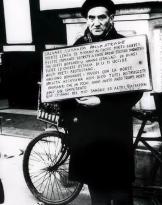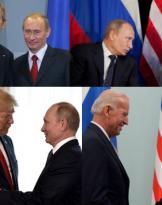Behind every great idea there is always the audacity to try something new, to improve. Behind the new Italian-French Brigade there is the desire to better enjoy the mountains, to let its men collaborate - the Alpini - and to do it in the best possible way.
Thus in 2009, following a summit of the French and Italian political authorities, the need was expressed for the first time to address the emerging crises that modernity offers with closer cooperation between the two armies. The Joint Brigade was just a thought in the head of some dreamer, the ones who then make the ideas a reality.
In the 2010 the bilateral talks between the Major States begin and the letter of intent with which the key points for the development of the project are drawn up.
This may seem an easy step, we would say almost obvious and instead it is a salient step, without common intent none of the armies involved can work together.
Listening to the needs, understanding them and making them their own is the aspect of the Alpini that is remembered better and that once again, in such a delicate condition leave the unmistakable sign of their professionalism in working to improve the work of our Army abroad.
The following year - in 2011 - the respective defense ministers signed the technical agreements, starting to take shape to the concept of employment of the Brigade. The phases and times with which the operational capacity of the Command must be reached are defined. In the two-year period 2012-2014, the reality of the joint Brigade slowly begins to become reality.

Despite the standardization at NATO level and the sharing of the ambit, our Alpine and their French mirror the Chasseur Alpins must begin to work together to build that professionalism and that degree of competence that has always distinguished them in the respective countries.
A series of joint exercises are taking place involving both countries in ascension activities, ski raids, mountaineering training and military sports competitions in the high mountains, all typical activities of the two Brigades.
The 17 September 2014 to ideally seal the closure of these joint exercises on the Moon Mountains - Cima Saurel - the Alpines of our Taurinense Brigade and the Chasseur Alpins of the 27th French Brigade, met at 2329 meters to celebrate - right on the border point of the two nations - the imminent birth of their bi-national project.
The march was conducted by personnel of the Commandos of the two Brigades, who faced the ascension each starting from their national base to meet on the Cima Saurel in the presence of the commanders of the two Units, General Massimo Panizzi and General Hervé Bizeul.
However, the first important recognition for the full operation of the bi-national Command comes precisely in Italy and more precisely at the Simulation and Validation Center (Ce.Si. Va) based in Bracciano in the period of time between the 3 and the 14 November 2014 .
General Panizzi, commander of the Alpine Brigade Taurinense has agreed to answer some questions for Online Defense on this very important goal without hiding an immense satisfaction for what has been achieved.
General, this could be the spearhead of his career at the Taurinense Command. Can you tell us how you feel right now?
I am proud but also lucky. My men have worked well and have found in the common passion for the mountains that sense of camaraderie that helps us work with our French mirrors. It was not easy, but the professionalism and the desire to improve made it possible to overcome all the difficulties encountered along the way. For me and my men it was a path of professional enrichment and very important staff and I am proud of how the Taurinense has worked in a context like the bi-national one
Among the many difficulties that the general brings to my attention one in particular seems to me unusual but not to be underestimated.
 One of the first problems we faced was that of the language to be used. The official language at NATO level is English, however in Bracciano and also at Mailly it was decided to use the language of the partner country, the French committed themselves to speak Italian and we to speak French, it was not an exception to what prescribed by the Atlantic Pact but given the respect and importance of the work done, it seemed right to emphasize all this not only in professional terms but also in human terms. Small language courses have been set up to facilitate communication both at the Command and troop levels. I believe the French have appreciated and we have even surprised them a little.
One of the first problems we faced was that of the language to be used. The official language at NATO level is English, however in Bracciano and also at Mailly it was decided to use the language of the partner country, the French committed themselves to speak Italian and we to speak French, it was not an exception to what prescribed by the Atlantic Pact but given the respect and importance of the work done, it seemed right to emphasize all this not only in professional terms but also in human terms. Small language courses have been set up to facilitate communication both at the Command and troop levels. I believe the French have appreciated and we have even surprised them a little.
The validation of November was a great achievement but above all a great example of how, with the due cooperation work previously exposed, NATO can bring out the best of the troops of the related countries by optimizing resources and creating the synergy useful to cooperate also in scenarios very complex.
General how the validation took place, what were the assigned tasks and how did you divide the work?
The work was divided equally between Italy and France. For example, if the head of the command was Italian, the deputy commander was French, we wanted to avoid favoritism, if we must cooperate we must do it seriously. The Army Validation Center has suggested using the Italian-French Brigade in a rather plausible scenario seen the times they run. The imaginary country in which they had to intervene had already been the subject of a previous mission by NATO troops. After withdrawing from the country, the latter fell back into a vortex of social violence and civil war, requiring the military forces to intervene again. Since the Bi-National Brigade was readily usable, it was expected to be used as an Entry Force pending the arrival of a larger contingent, a sort of emergency service. In the Simulation there were hypothesized activations with IED attacks, earthquakes, ambushes in several scenarios, complex attacks on our men by armed subjects disguised as a regular army of the revolting country. In short, all the tests we underwent gave positive results, we reacted effectively and promptly, putting a strain on our doctrines and procedures which, thanks to NATO standardization, gave their best. it is only one of the scenarios of possible use but the Brigade must be ready to operate on all the Specter of the foreseen operations.

The general and his staff show immense pride, yet they know that they can not relax yet. The one in Bracciano was just the first of the two tests that will allow the Brigade to become fully operational.
The second Validation exam took place from 2 to 12 February 2015 with the support of the simulation systems of the Command Station Training Center of the French Army of Mailly, in the Ardennes.
The assumed scenario is not very different from the one developed in Bracciano. The bi-national command has been called to always operate as an entry force following the sudden destabilization of a country in economic, social and political crisis. Since there are no conditions for operating within the country, the Command is hypothetically hosted by one of the neighboring countries. The spectrum of activities to be planned and managed are varied and all possible in the reality of high-intensity scenarios such as: reactions to the action of insurgents , religious extremists and groups of foreign fighters, planning and conduct of typical activities of control and securing of the territory and others in support of local security forces.
Also the second validation was a success as planned, everything was done with professionalism and commitment, already aware of having given a great test to Bracciano and sure to want to repeat the result in France.
 Thus entered into full operation, the Joint Brigade hypothesizes its first employment in the second half of the 2015 in Lebanon if conditions allow it.
Thus entered into full operation, the Joint Brigade hypothesizes its first employment in the second half of the 2015 in Lebanon if conditions allow it.
What these two countries have achieved is a success that has very few other precedents in the history of our Army, with commitment they have managed to turn an idea into reality, a reality composed of highly professional figures that enrich the work of one and another part with the respective historical and employment events.
Nothing can imagine an easy future for this Brigade Command called to perform complex tasks in ever-changing scenarios but the flexibility of the military structure - not permanent but readily employable - the excellent knowledge of modern operating theaters will ensure that these men and women can work in symbiosis for the sake and security of anyone who needs it.
Overcoming the eternal distrust of multinational cooperation and doing the jokes among the many defense cuts in our country, the Taurinense Alpine Brigade reincarnates the desire to work well, to be present to bring relief to countries battered and to do so at high levels always at the top.
Denise Serangelo
(Special thanks for the availability and courtesy goes to Capt. Stefano Zonzin)













